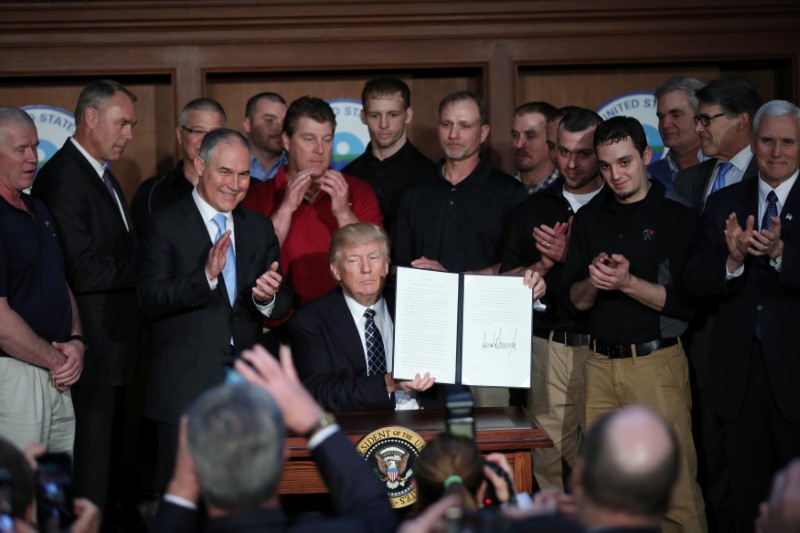Investing.com’s stocks of the week
By Valerie Volcovici
WASHINGTON (Reuters) - The U.S. Environmental Protection Agency said on Wednesday it will review how bedrock laws like the Clean Air Act and Clean Water Act affect energy industry job losses, one of several measures U.S. agencies will take to "reduce unnecessary regulatory burdens" on business.
The measure was one of four initiatives proposed by the EPA to help carry out an executive order issued by President Donald Trump in March. He directed cabinet chiefs to identify ways to ease regulatory burdens on energy development.
EPA Administrator Scott Pruitt, Energy Secretary Rick Perry and Interior Secretary Ryan Zinke each announced separate lists of measures they sent to the president to carry out his order.
"We are working to curb unnecessary and duplicative regulatory burdens that do not serve the American people," Pruitt said in a statement.
Environmental groups said the plans submitted by the agency heads are putting U.S. natural resources in the hands of polluters.
"The Trump Administration is intent on putting oil, gas and coal companies in charge of when, where and how they exploit taxpayer-owned resources," said Kate Kelly, public lands director for the liberal Center for American Progress.
The EPA will conduct a study to weigh how its regulations affect job losses in sectors like coal. A federal court has ruled that the EPA did not need to conduct such an assessment.
The EPA will also create a task force to simplify the permit process for building new polluting facilities, weigh options to revamp national ambient air quality standards and launch a "smart sectors" program to engage with industries as it crafts regulations.
The Energy Department said it will focus on streamlining natural gas exports, review its national laboratory policies, review National Environmental Policy Act (NEPA) regulations for approving major infrastructure projects and reviewing the agency's popular household appliance standards program.
The Interior Department submitted what it called an "energy burdens" report to the president, which outlines some Obama-era regulations it has started to reverse or reform, or has plans to.
This includes lifting the moratorium on coal leases on federal land, reviewing regulations on fracking on federal and tribal land, developing a five-year plan for offshore drilling and streamlining the federal leasing program and permitting process.
